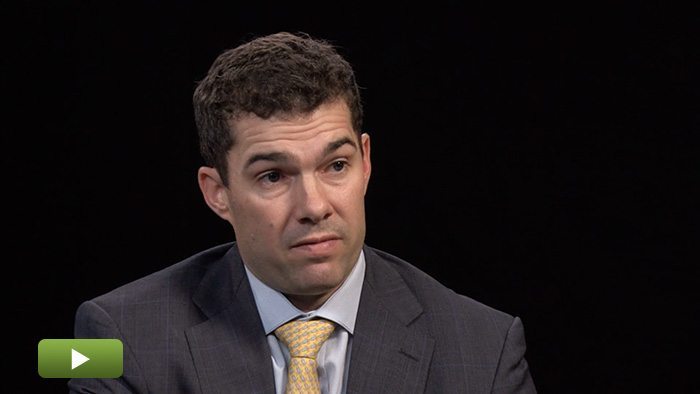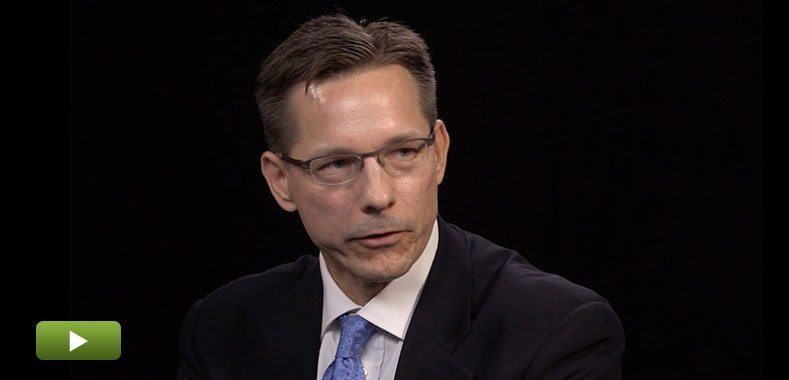How Tiger 21 Uses the ‘Portfolio Defense’
As high-net-worth investors climb higher in the tax brackets, it’s often difficult for them to get unbiased opinions or to educate themselves about possible additions to their portfolio. Peer-to-peer network Tiger 21 is trying to ease the isolation these investors might feel.
Transcript Download Transcript
How TIGER 21 Uses the “Portfolio Defense”
With Barbara Goodstein from TIGER 21
David Snow, Privcap:
Today, we’re joined by Barbara Goodstein of TIGER 21. Barbara, welcome to Privcap. Thanks for being here.
Barbara Goodstein, TIGER 21:
Thank you.
Snow: Could you start with a real quick overview of what TIGER 21 is?
Goodstein: TIGER 21 is a peer-to-peer learning network for high net-worth investors and wealth creators. It’s where people come to get access to the best minds and best opportunities in the financial world.
Snow: What were some of the challenges that high net-worth investors were facing that TIGER 21 is seeking to address?
Goodstein: It’s an interesting challenge—when people have achieved a certain level of wealth, they become somewhat isolated and they start looking for people in similar circumstances. We built TIGER 21 off the platform that there are many, many wealth creators and people who have gone through liquidity events and very successful investors who are trying to figure out what’s next, what’s their next opportunity, and they don’t have that many people to talk to.
One of the people who recently joined us articulated it by saying, “I don’t want to be in a room where I’m paying everybody else to answer me. I want to be in a room where I can get unbiased real information back.”
Snow: Of course, as soon as someone reaches a certain level of wealth, they become besieged by consultants of various kinds. Is this part of the problem that the newly wealthy have found?
Goodstein: The real issue is how can they get the best perspective and advice? This is advice and perspective that’s completely unbiased. You’re not paying anybody and it’s based on experience, so people are sharing their best experiences. They’re telling each other their war stories. People are learning and saving money as a result of being in the room with other people who have gone through similar circumstances.
Snow: What have been some of the most successful aspects of TIGER 21 so far?
Goodstein: One of the most unique aspects of TIGER 21 is the portfolio defense, where the member will share his or her personal portfolio with the rest of the members in the room. One of the members is an investment manager at one of the major investment banks. I have another member who is one of the most successful venture capitalists. Another member is an incredibly well-known, successful estate-planning attorney.
So, you get feedback from people you would never have had access to.
Snow: Is there a recurring theme to the way these investors have changed their portfolios based on this feedback? Is there a certain type of asset or a certain play that they pursue, once they’re exposed to these peers?
Goodstein: The interesting thing is we’ve seen private equity investment go up year over year. So, one could say that people have become more interested in private equity areas as a result of the portfolio defense, because they’re learning more about different areas of opportunity. They’re being educated by the people in the room and they’re being exposed to new and unique investment strategies. In fact, this year, private equity eclipsed all other asset classes in terms of investments across the TIGER 21 platform.
Snow: Are these investors investing in private equity funds or are they looking for their own deals and investing directly?
Goodstein: They’re doing both. They’re investing in their own deals because this is what they know and people are very comfortable in the space that they know. They’re investing in deals that are brought to them as a result of being part of the TIGER 21 platform.
For example, during the Brexit vote, we had a conference call with our members, who are very experienced at trading in currencies. So, you get a real broad array of support and a lot of different inputs from very, very experienced people.
Snow: What do people need to understand about reaching the high net-worth market that you’ve learned from running TIGER 21?
Goodstein: The interesting thing about the high net-worth market is they don’t want to be sold. They’re overwhelmed by being pitched and they’re looking for real advice and education.
Snow: Is that a challenge that many of your members face, just trying to sort out who’s actually giving real advice, who’s actually really pulling together the resources that my family office needs versus just another service provider?
Goodstein: Because you have all these people of trading stories, they can assess the different providers out there based on other people’s experiences. We do have many, many people who are interested in starting family offices and they’re all learning together.
Snow: Let’s talk a bit more about private equity. Why do you think it has become a focus of interest among your members?
Goodstein: I think, in the current low interest-rate environment, people realize that they have to find something that’s going to give them an edge. Private equity taps the skills that these people have built over the years. They have specific interest in different categories they’ve learned, based on building businesses.
So, now, they take board seats in many cases. They’ve become active investors and they’re tapping into areas based on their backgrounds and experience. In many cases, they’re also tapping into areas or exploring areas, based on the experience of the other members in their group that they have come to know and trust.
Snow: Who can join TIGER 21? What are the requirements?
Goodstein: The first requirement is integrity and we are looking for people who are interested in learning. We want people who want to be part of a group. Then, we have a requirement that people have over $10 million in liquid assets because we think those are the people who will benefit the most from this type of conversation.
Snow: Who is a typical member? Is there a profile that seems to pop up quite a bit?
Goodstein: We call the typical members “wealth creators.” That can mean that they have started their own businesses. It might be C-suite executives or people who have been very successful in investing, but they have come from very humble backgrounds, in most cases, and they’ve created the wealth themselves. This is almost like an immigrant experience. They have transitioned from one place to another place and they’re all learning how to be in that new place together.



